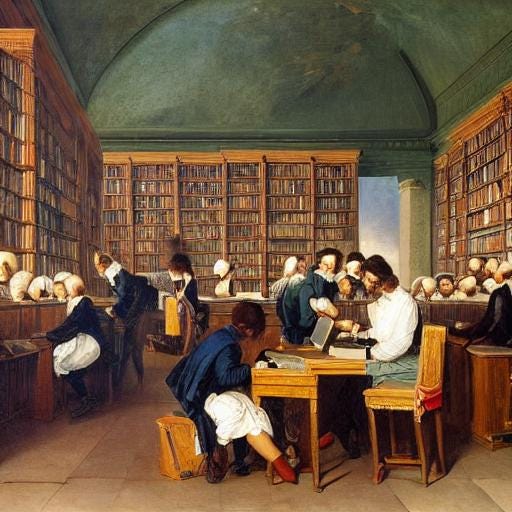Did you know that college is free in some countries?
In Europe, I met a redhead from Sweden named Rasmus.
He’s my age — 21.
But he wasn’t in college. For the past few years after high school, he’s been working and traveling. He visited Thailand and South America. I met him in Italy.
He was happy doing his own thing. He told me he wanted to go to college, but he wasn’t in any particular rush.
I was curious.
Think about this: college is free for Rasmus, yet he was in no rush to go. Same with many of his fellow Swedes. He even told me it’s common to see freshman that are 21 to 23 years old.
You’d think if college was free, people would just snatch it up, right?
I guess not.
Maybe the people in Sweden see the value in college, but they also value life experience and exploration over rushing into school.
Sure, taxes are higher over there.
But if college is free, it might not be top of mind for people. Maybe what’s more important is working, making some money, then going to see the world before they dive deep into their studies and work.
It’s almost as if work and travel give them a better sense of the career and life path they want to have.
Judging, Identity, FOMO

My first week back in America this summer, I met a salesman named Scott.
My travels to Europe came up in our conversation. We connected on travel and Prague, and he mentioned that when he traveled to Europe, he noticed a certain “freedom.”
Seeing that America is the “home of the free,” I had to ask him more.
Here’s what he meant by that:
“I have been traveling to Europe every year since 1993, after college graduation.
The freedom to me doesn’t just come from the fact that I’m on vacation every time I go. To me the freedom I witness in Europe is a much simpler way of life to me. People respect what they have, who they are and appear happy doing what they love no matter what others may think.
Much of that is a comparison to America where I believe judgment and greed play a huge part in what shapes American happiness or the lack of.”
This is more about identity and status.
Whether you realize it or not, being a college student gives you an identity. No matter where you go to college, there’s some prestige in saying you’re a college student. Not necessarily because you go to a certain school, but because you’re indirectly telling people that you’re working towards something (a degree).
When I used to tell someone “I’m a college student,” I felt confident. Even though like all other college kids who didn’t know what they wanted to do, it gives you a sense of meaning and direction. You’re taking yourself somewhat seriously to graduate college and pass classes. It’s an identity. It is a badge to show others.
But if you’re young and you work at a retail store, when you tell people that, there’s less glamor to it. Other people might think, “what do you want to do” or “when are you going to college.” There’s less status to it.
People may not hold you in as high of regard as a college student. They almost expect more of you here in the US.
Even telling people I’m a writer feels weird. I write every single day, but because it’s a less linear career trajectory, it’s a strange feeling. I don’t feel prestigious like I did with the college student identity.
Most of this runs below our conscious detection.
It feels like there’s immense pressure in America to go to college right out of school. Because that’s the next right step that most people do, many of us feel compelled to enroll in college.
While we’re still in high school.
There’s widespread fear of missing out: if we don’t know what we want to do, we revert to what everyone else is doing — going to college. The ironic thing is that most people in college don’t know what they’re doing or what long term career they want.
“First, the big problem with life in many industrialized countries is that far too often, we’re expected to choose a career before we can legally buy a beer.”
Yet in Sweden and Europe, it’s different.
People care less, but they’re not careless. They won’t subconsciously project their values and beliefs systems on you that you should go to college or should have higher ambitions.
There’s much less prestige and status around things like university and careers. People are less judgemental and treat you all the same, as Scott touched on.
I noticed that in the past I’d sometimes interact differently with a guy in an orange construction vest versus a doctor in a white coat.
But soon I realized that we’re all just humans.
As actor Hugh Jackman once said, we all deserve to be appreciated. When I was in college, my friend and I were eating at a dining hall. After being the last ones out before it closed at eight, he thanked the janitor as we plodded past the table he was cleaning.
Looking back, a simple “thank you” like this changed my life. It made me realize that we shouldn’t cast judgment on the ways people decide to make a living.
Drop status. Don’t judge. Send love.
In Europe, people love themselves and each other for who they are. Who they are isn’t as bound to what they do like it is in the US. It’s less about status and more simple: sharing good times with people and going out for lunch during the week.
This isn’t to criticize America. It’s probably not representative of all of America. But America is known for the “American dream” and “Keeping up with the Joneses.”
As millionaire Alex Hormozi once said, just because everyone else is doing it, doesn’t mean it’s the next “right” step for you.
Consider working, traveling, and gaining real world experience before you think about careers. Get to know yourself for free before paying money to a college to figure out what you want to do.
It might take longer, but you’re on your way to doing and being you.
Till next time,
Baxter
Last thing: if you liked this, you’ll enjoy my daily short-form writing on Twitter. It’s where I share most of my ideas, stories, and thoughts.



